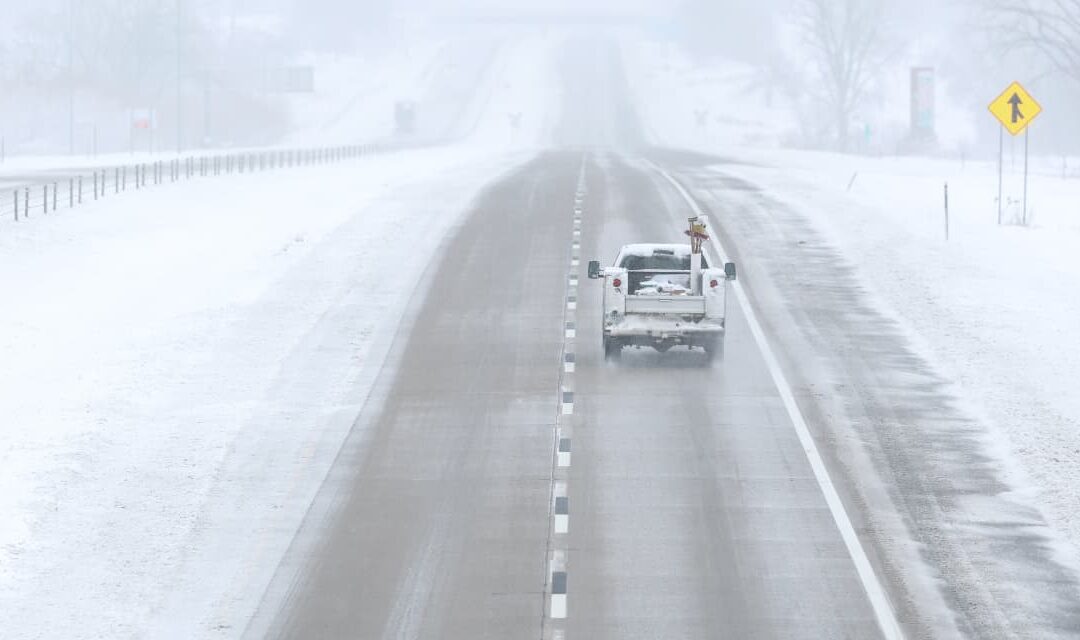Storms and other extreme weather events can wreak havoc on older Americans’ lives, affecting their homes, finances and even their health long after the rain stops and the snow melts.
States across the U.S. were battered by storms on Tuesday, with some 196 million people affected by snow, severe winds, heavy rain, thunderstorms and tornadoes, Axios reported. As of Tuesday night, North Carolina, New Jersey, Kansas, Maryland and Florida had declared states of emergency.
The conditions are dangerous: The storms have killed at least four people and displaced dozens more, NBC reported. As of Wednesday morning, 370,000 people were still without power in the mid-Atlantic, along with more than 100,000 in the Southeast and almost 97,000 in New England, according to PowerOutage.us, a website that aggregates power-outage data from utility companies across the country.
Americans of all ages, and especially older people, are urged to prepare for such storms. And after a storm, people often face issues with with utilities, medications, finances and home repairs. Here are some recovery strategies and tips.
Reimbursement after a power outage
If your power is out for multiple days, you may be eligible to receive reimbursement from their utility company. After Tropical Storm Isaias in 2020, Con Edison, an electric and gas company in New York City and Westchester County, N.Y., reimbursed customers for food and prescription medications that had spoiled due to a lack of refrigeration. National Grid, a utility company operating in New York and Massachusetts, offers customers who experience a power outage lasting more than 72 consecutive hours reimbursements for food and prescription medications, according to the company’s website.
Home repairs
If a storm affects your home, document the damage for insurance purposes, the Red Cross says.
Compare prices before hiring a contractor or company for any home repair. Find a professional who is licensed and insured, and make payments as the work is done and not in advance, the Department of Health and Human Service’s Administration for Community Living recommends.
Secure finances
Because disasters can affect mail service, consider signing up for electronic delivery of financial statements, including from programs such as Social Security, as well as direct deposit of any regular payments coming in. This can avert the possibility of stolen checks, according to Ready.gov, a campaign to assist people in preparing and responding to emergencies that is run by the Department of Homeland Security. There are two safe ways to get federal benefits, the department says: by direct deposit to a checking or savings account, or with the Direct Express prepaid debit card, which is designed specifically for federal benefits.
Other resources
The U.S. Department of Health and Human Services, through the Emergency Prescription Assistance Program, helps people refill their prescriptions after a disaster.
The department also recommends that people check for federal assistance and benefits at www.disasterassistance.gov, which provides information and support in regards to disasters. You can also reach out to local emergency-management agencies about grant programs to assist in disaster recovery. The Eldercare Locator, available through www.eldercare.acl.gov or 1-800-677-1116, is a national campaign to provide information, resources and support on a variety of issues pertaining to older Americans.
Prepare for the next disaster
Have a plan in place in the event of a storm or other natural disaster. These plans, the American Red Cross recommends, should include gathering emergency supplies such as food, medicine and water, as well as making sure important documents, including medical, personal and financial records, are kept in a safe place. Sign up for local emergency alerts and plan ahead for how you will safe during a storm, including where to evacuate if need be and how to care for dependents or pets during that time.
The Greater Rochester Chapter of the American Red Cross has developed a comprehensive disaster-preparedness document “for seniors, by seniors” that lists important contacts as well as the basics to consider when creating a disaster plan.









